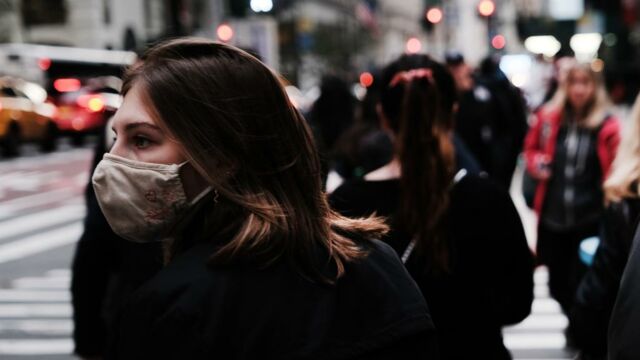The number of COVID-19 infections recorded last week is the same as figures recorded at the peak of the second wave in January. According to statistics from the Office for National Statistics, one in 50 people in England caught the virus last week.
Discover our latest podcast
The Breakdown
The figures released by the ONS are based on swabs collected from randomly selected households. Analysis of the data points to an estimated 2% of people having Covid in the week ending 22 October – about 1,102,800 people.
The last time such numbers were recorded was in the weeks around late December and early January - the height of the second wave in the country.
The figures indicate a rise on the week before, when about one in 55 people in the community in England were thought to have Covid.
In Wales, the latest estimates are even higher, with an estimated one in 40 people thought to have had Covid in the week ending 22 October. Northern Ireland and Scotland fared better, with about one in 75 being infected during the period.
ONS data suggests that more than 9% of children in school years 7 to 11 were infected in the most recent week. The data further points to an increase in infection in all age groups, except for those in school year 12 to aged 34 years.
Levelling-off
Although experts say it is uncertain if a peak in daily cases has been reached, they are hopeful cases may level off or fall in the coming weeks. This could be because the high level of infection among children will eventually lead to high levels of immunity.
Dr Rhiannon Yapp, co-lead for the Covid-19 Infection Survey, said infection rates need to be constantly monitored as winter approached.
Infection rates in England are now at similar levels to when the year began, with infections amongst school age children the highest recorded in our survey. Infections across the other UK nations are also high. Hopefully, the success of vaccination programmes will protect many in older age groups from developing severe symptoms.















